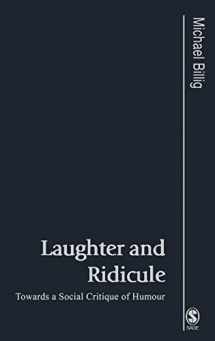
Laughter and Ridicule: Towards a Social Critique of Humour (Published in association with Theory, Culture & Society)
Book details
Summary
Description
From Thomas Hobbes′ fear of the power of laughter to the compulsory, packaged "fun" of the contemporary mass media, Billig takes the reader on a stimulating tour of the strange world of humour. Both a significant work of scholarship and a novel contribution to the understanding of the humourous, this is a seriously engaging book′ - David Inglis, University of Aberdeen
This delightful book tackles the prevailing assumption that laughter and humour are inherently good. In developing a critique of humour the author proposes a social theory that places humour - in the form of ridicule - as central to social life. Billig argues that all cultures use ridicule as a disciplinary means to uphold norms of conduct and conventions of meaning.
Historically, theories of humour reflect wider visions of politics, morality and aesthetics. For example, Bergson argued that humour contains an element of cruelty while Freud suggested that we deceive ourselves about the true nature of our laughter. Billig discusses these and other theories, while using the topic of humour to throw light on the perennial social problems of regulation, control and emancipation.


We would LOVE it if you could help us and other readers by reviewing the book
Book review



